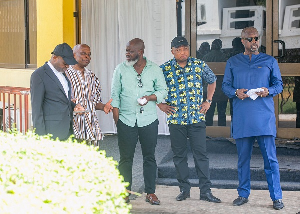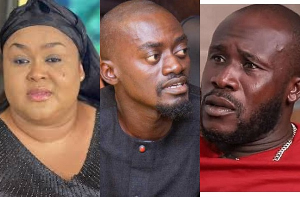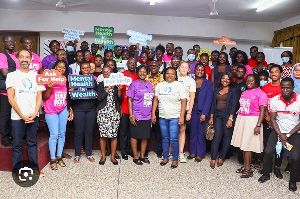As a dedicated Medical Doctor and a longstanding member of the Ghana Medical Association (GMA), I feel compelled to voice my concerns regarding the obnoxious nationwide strike proposed by organised labour in response to the challenges posed by illegal mining, commonly known as “galamsey.”
While we are all deeply aware of the grave health risks that galamsey presents—as highlighted by extensive research—this complex issue cannot be eradicated overnight. It demands a sustained, collective effort. Our responsibility as medical professionals, and indeed as citizens, is to contribute meaningfully to this national fight by advocating for practical solutions rather than exacerbating the situation through actions that may harm our patients. It makes no sense to sentence our current patients to death simply to protect our future patients. It is simply unconscionable to deny people on dialysis, in emergency units, etc our services.
Illegal mining is an insidious threat to our water bodies, environment, and health. To address this effectively, we must engage in public sensitization and education, particularly within affected local communities. We need to help them understand the devastating consequences that illegal mining has on their health and livelihoods. In tandem, our security and forestry institutions must be revitalized and properly resourced with the tools and logistics required to protect our precious natural resources. The enforcement of laws must be firm and consistent, and we should consider the establishment of civil defense units. These units, comprised of local citizens trained to safeguard their natural resources, can collaborate with the police and other security agencies to protect our environment, especially our water bodies.
However, a nationwide strike by the GMA would be both unethical, hypocritical and counterproductive. As Medical Doctors, we have taken an oath to save lives. Abandoning our patients—many of whom are critically ill or battling life-threatening conditions—is not a solution to the illegal mining crisis. It is our duty to serve, and to act in the best interests of our patients, regardless of external pressures. This is not the time to abandon those who depend on us, especially for reasons that are not directly related to patient care. Let us not lose sight of the fact that we are healers first. We must standby the vulnerable—our patients.
In this regard, I suggest the following:
1. GMA not to take part in any form of strike that will harm our patients. We cannot sacrifice our current patients because we want to protect future patients.
2. The GMA should call organise labour to engage Nananom, small scale miners and community leaders in mining areas to engage them on solutions to eliminating illegal mining.
3. The GMA should engage organised labour to set up a road map including the amendment of laws undermining the preservation of forest reserves.
4. Get the main leaders of the major political parties into a meeting that will bring them face to face with the public to commit to the common road map after elections.
In conclusion, I strongly urge my colleagues to resist any calls for a strike. Instead, let us use our influence and expertise to support the ongoing fight against illegal mining, while upholding the ethical standards that define our profession. Together, we can play a part in solving this problem without jeopardizing the health and lives of those who need us most.
Opinions of Tuesday, 8 October 2024
Columnist: www.ghanaweb.com



















